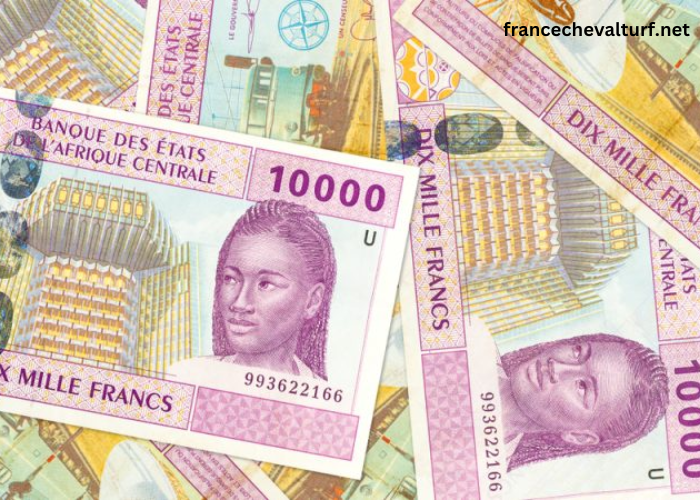In West and Central Africa, the relationship between the Euro and CFA franc plays a crucial role in the economic activities of the region. The Euro en Cfa conversion rate is widely used for cross-border trade, tourism, and everyday transactions in several countries that utilize the CFA franc as their currency. Understanding this conversion is essential for anyone engaged in international trade or travel within these areas. This article will delve into the significance of Euro en Cfa, its current exchange rate, and how it impacts both the region’s economy and individuals in their daily transactions.
The Euro en Cfa exchange rate serves as a vital financial tool for individuals and businesses in the Eurozone and the CFA franc zone. The CFA franc, which is used by several African countries, is pegged to the Euro, providing stability in the region’s financial transactions. This article will explore how the conversion works, the factors influencing it, and the impact it has on both local economies and international trade.
What Is Euro en Cfa and How Does It Work?
The Euro en Cfa refers to the exchange rate between the Euro and the CFA franc, which is the official currency of 14 West and Central African countries. The CFA franc is divided into two variants: the West African CFA franc (XOF) and the Central African CFA franc (XAF), both of which are pegged to the Euro. The fixed exchange rate system means that one Euro is always worth a specific amount of CFA francs, providing stability in trade and financial exchanges.
For instance, as of the latest rates, 1 Euro is equivalent to approximately 655.957 CFA francs, though this rate can fluctuate slightly depending on external economic factors. The Euro en Cfa exchange rate is crucial for businesses and individuals in the CFA franc zone when engaging in transactions with Eurozone countries, as it determines how much CFA francs are needed to buy goods and services priced in Euros. This system of pegging ensures that the exchange rate remains stable, which is essential for maintaining economic stability in the region.
How Does Euro en Cfa Affect Trade Between the Eurozone and Africa?
The Euro en Cfa exchange rate plays a significant role in trade between Eurozone countries and the countries using the CFA franc. Since the CFA franc is pegged to the Euro, the exchange rate provides a predictable and stable value for businesses involved in cross-border trade. This stability is crucial for traders, as it reduces the risks associated with currency fluctuations, making it easier to plan and execute long-term contracts.
For African businesses in the CFA franc zone, the Euro en Cfa exchange rate ensures that they can engage in imports and exports with the Eurozone without the threat of sudden, unpredictable changes in currency value. This stability encourages foreign investment and trade, promoting economic growth in the CFA franc zone. On the flip side, businesses in the Eurozone benefit from predictable exchange rates when trading with the CFA region, simplifying the process of pricing and financial planning.
How Does the Stability of Euro en Cfa Benefit the CFA Franc Zone?
The Euro en Cfa system brings stability to the economies of the CFA franc zone by providing a fixed exchange rate that is not prone to the volatility seen in other currency systems. Because the CFA franc is pegged to the Euro, countries in the CFA region benefit from the economic stability of the Eurozone. This ensures that their currency values do not fluctuate wildly, which can be a common problem in countries with unstable currencies.
This stability also helps keep inflation rates in check. Since the Euro en Cfa system prevents rapid depreciation or appreciation of the CFA franc, it contributes to maintaining consistent prices for goods and services across the CFA franc zone. This predictability is essential for both local businesses and foreign investors who want to engage in trade without worrying about significant changes in currency value.
What Are the Advantages of the Euro en Cfa System for African Countries?
One of the key advantages of the Euro en Cfa system for African countries is the stability it provides for both domestic and international transactions. Since the CFA franc is pegged to the Euro, it is less susceptible to inflationary pressures or the volatility of global markets. This stability fosters confidence in the currency, both among local populations and international investors.
Another advantage is that the Euro en Cfa system provides a sense of financial security in the region. Citizens and businesses can plan their finances more effectively because they know that the value of the CFA franc will not experience extreme fluctuations. Additionally, the fixed exchange rate makes it easier for these countries to maintain low interest rates, which helps to promote economic growth and encourage borrowing for development projects.
How Do Economic Events in the Eurozone Impact the Euro en Cfa Exchange Rate?
Since the CFA franc is pegged to the Euro, any significant economic events in the Eurozone can have a direct impact on the Euro en Cfa exchange rate. For example, decisions made by the European Central Bank, such as interest rate changes or monetary policy adjustments, can influence the value of the Euro, which in turn affects the CFA franc. This means that inflation or economic downturns in the Eurozone can indirectly affect the purchasing power of citizens and businesses in the CFA franc zone.
Moreover, the financial stability of the Eurozone directly influences the economic health of the countries using the CFA franc. If the Eurozone experiences a recession or financial crisis, the Euro en Cfa exchange rate could come under pressure, leading to potential challenges for businesses and individuals in the CFA franc zone. Conversely, if the Eurozone experiences strong economic growth, the value of the Euro could strengthen, further boosting the stability of the CFA franc.
How Do People in the CFA Franc Zone Use the Euro en Cfa Conversion Rate in Daily Life?
People in the CFA franc zone rely on the Euro en Cfa conversion rate for a variety of daily activities, from purchasing goods and services to making international transactions. For instance, when traveling to the Eurozone, individuals need to know the current exchange rate to determine how many CFA francs they will need for their trip. Similarly, when engaging in international trade or receiving payments from Eurozone businesses, individuals and companies in the CFA franc zone must convert currencies to ensure proper financial planning.
Additionally, the Euro en Cfa rate is critical for pricing imported goods. Many products in the CFA franc zone, such as electronics, automobiles, and luxury goods, are imported from the Eurozone. The price of these goods in CFA francs is directly influenced by the Euro en Cfa exchange rate, meaning that fluctuations in the exchange rate can affect how much consumers must pay for these imported items.
Conclusion
In conclusion, the Euro en Cfa exchange rate plays an essential role in the economies of the CFA franc zone and their relationship with the Eurozone. This stable currency system promotes economic growth, fosters international trade, and helps businesses and consumers navigate financial transactions with predictability.
Despite potential challenges arising from global economic events, the Euro en Cfa system provides a framework of financial stability that benefits both the CFA region and the broader international economic community. Its role in facilitating trade, pricing, and investment continues to be vital for countries in West and Central Africa.




